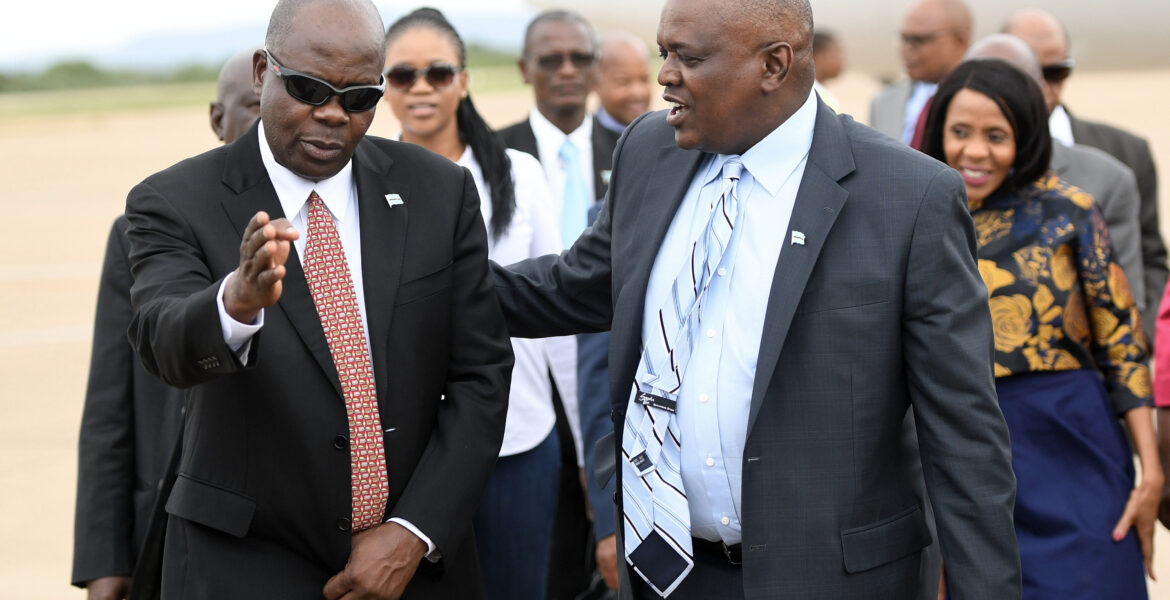- Counter-Terrorism Analysis and Fusion Agency to become a division under DISS
- Police, BDF, FIA to take instructions from DISS in the counter-terrorism space
- Other law enforcement agencies are perturbed that DISS will lord it over them
Amid a spate of losses in court and growing concerns about overreach by the Directorate of Intelligence and Security Service (DISS), the government is planning to fortify powers of the secret service further by enervating the Counter-Terrorism Analysis and Fusion Agency and turning it into a division under DISS.
The fusion agency was under the DISS during the Isaac Kgosi era but was removed and made a fully fledged entity in its own right when Brigadier Peter Magosi took over as Director General in an effort to meet recommendations of the Financial Action Task Force (FATF) as a part of steps to remove Botswana from its grey list. Analysts say consultations with FATF provided an opportunity for the new head of DISS to weed out unwanted operatives suspected of being loyal to former president Ian Khama who had struck an increasingly cold posture towards his successor and the government.
The proposed law for making the fusion agency a division of DISS is contained in the Extraordinary Government Gazette of 23 December 2021 and has led to agitation among other law enforcement agencies about an agency that was established through an Act of Parliament to provide for measures to prevent and combat terrorism and terrorism financing.
The agency had enormous powers like arrest without warrant, freezing without delay, cordoning off areas, stop and search of persons and vehicle, interception, property tracking, exclusion orders, application of Immigration Act, disclosure of information, examination of goods, search of ships, vehicles and aircraft, seizure of property, designation of control areas, and information of owner of vessel or aircraft.
Inside sources say the move to place the fusion agency under DISS is a slap in the face of government officials and BDP cadres who have been calling for greater accountability and limitation of the powers of DISS to retrain what they see as its propensity for overreach in
ever-increasing court cases initiated and conducted by the secret service or under its direction and influence.
According to the bill, as a division under the DISS, the fusion agency will integrate all intelligence possessed or acquired by government pertaining to terrorism and counter-terrorism, conduct strategic operational planning for counter-terrorism activities and assign roles and responsibilities to investigating authorities.
According to sources, the Botswana Police Service and the Botswana Defence Force, who are members of the fusion agency, are perturbed by what they view as its enervation that could spell doom for counter-terrorism work because DISS has become notorious for pursuing its own interests.
“The move is clearly aimed at consolidating the powers of DISS to do as it pleases,” said a highly placed source in an interview. “They want all powers centralised around them because they are often limited to in their pursuit of their parochial ends. Should this pass,
all stakeholder agencies, including the Financial Intelligence Agency, will take instructions from DISS, all in the name of fighting terrorism.
“Legal proceedings such as in the ‘Butterfly’ case and now the Khama and Kgosi guns are matters that have to go through the fusion agency, but DISS has not had the confidence to refer such matters for analysis for fear that they would not meet the requirements to warrant prosecution. With the fusion agency under the ambit of DISS, Magosi will now have free reign to proceed with matters regardless of the test of evidence required.”
While the proposed amendment will reduce the position of the Director General to that of Director, it is not known whether the agency’s current Director General, Ernest Mosate, who was recently transferred from the Directorate on Corruption and Economic Crimes
(DCEC) on promotion, will remain. Mosate was among the transferees in the controversial failed bid to overhaul the DCEC in June last year that placed Priscilla Israel as a confidante of Magosi in the DCEC’s second highest position.
Efforts to get a comment from DISS proved futile while other institutions would not be drawn into the discussion.

